This post will guide you on embarking on your unforgettable scuba diving skills journey, laced with excitement, enriched with knowledge, and bubbling with breathtaking sights. Unleash your spirit of adventure and join us as we dive into a thrilling exploration beneath the waves. Discover a whole new world underneath the vast, tranquil ocean undisturbed by the everyday bustle of life. Prepare yourself to be mesmerized by fascinating marine life, ancient relics, and stunning coral architectures.
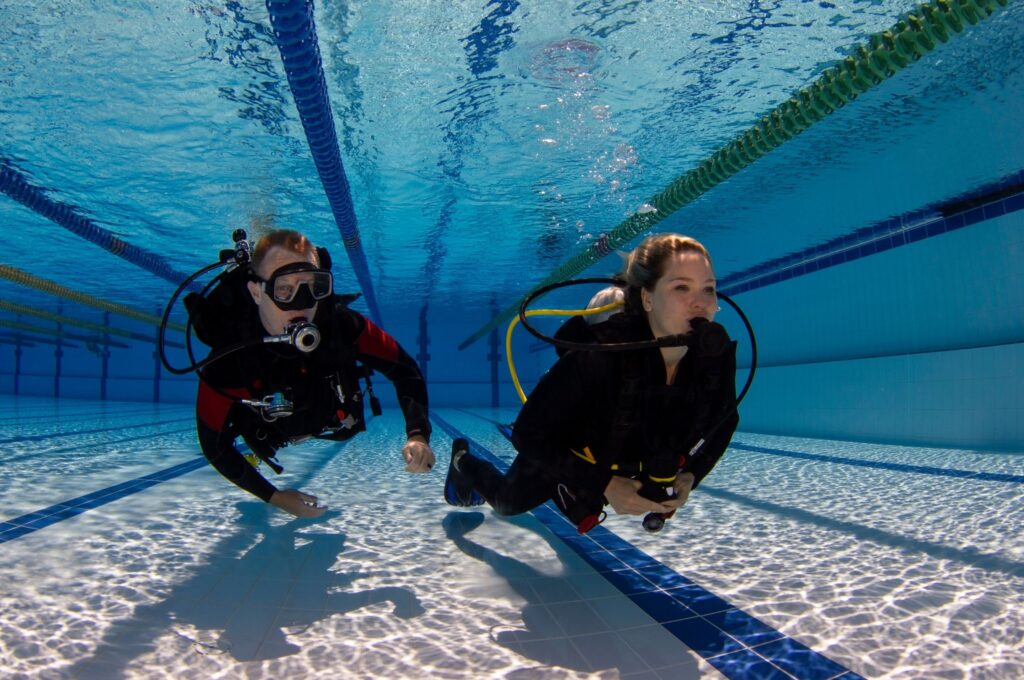
Swimming skill: Unleashing Your Inner Aquaphile
Your journey to the depths of the underwater world begins on the surface by mastering the basic skill of swimming. This primal skill is essential for a myriad of reasons. Firstly, it is a prerequisite for entry-level scuba diving courses. Even before you experience the wonder of breathing underwater, you must learn to glide on the surface. Being a competent swimmer paves the way for a smoother transition to the underwater environment. Many institutes acknowledge these benefits and offer an ‘open water course‘ where an experienced instructor introduces you to the enchanting universe beneath the water’s surface. By incorporating various swimming styles and endurance tests, the course ensures that you are well-equipped to navigate your underwater adventures effectively.
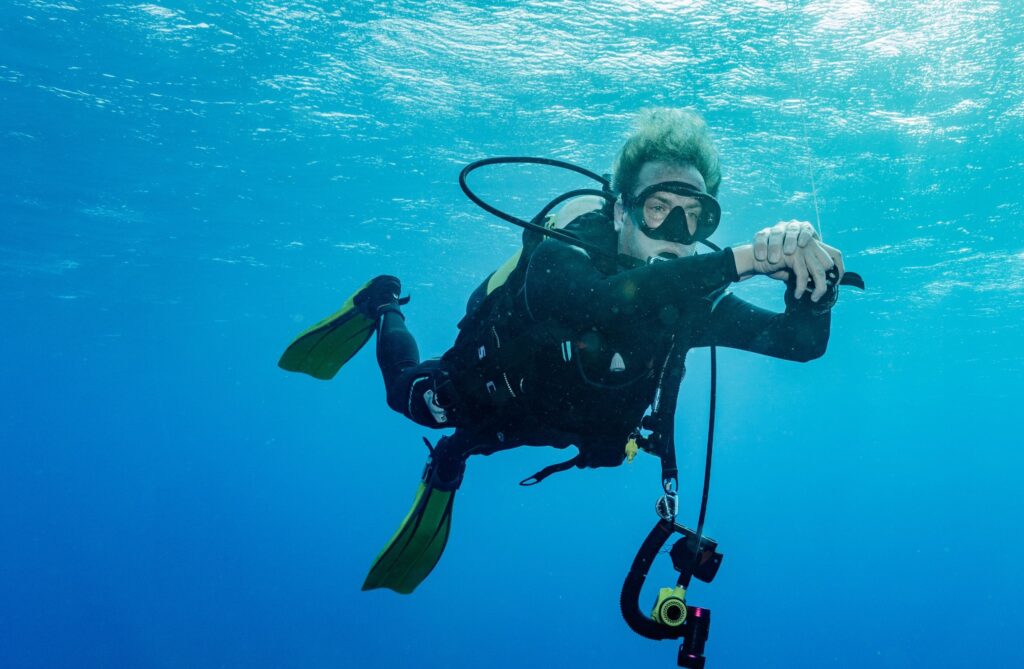
Breathing techniques: Paving Way to Your Scuba Diving Skills
Beneath the surface, every breath counts. Mastering appropriate breathing techniques for scuba diving skills is fundamental to your safety. By learning to breathe correctly underwater, you ensure that your air supply lasts longer, allowing you to remain submerged for extended periods. Breathing also has direct implications on your buoyancy control, with the rhythm and depth of your breaths significantly affecting your ability to float, sink, or stay at a particular depth under water. Moreover, mastering you breathing cycle can help alleviate stress and anxiety underwater thereby making your diving experience more enjoyable. In addition to ensuring your safety, proficient underwater breathing also allows you to observe marine life from up close without disturbing their natural habitat.
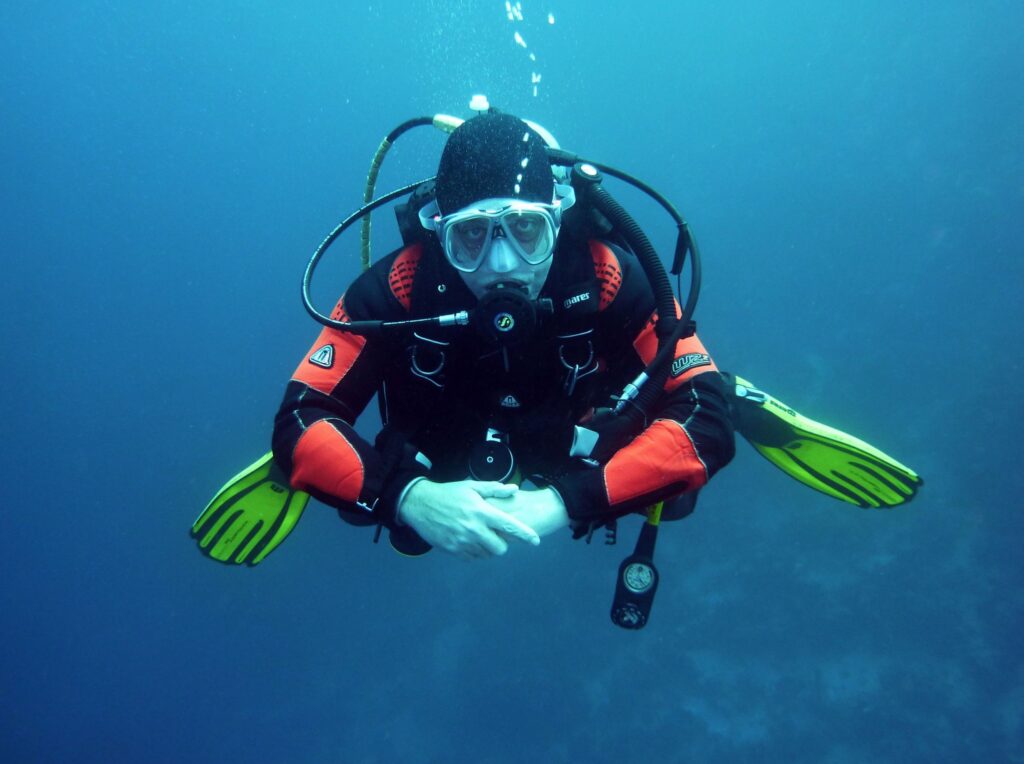
Buoyancy Control: The Art of Mid-Water Navigation in Scuba Diving
An oft-overlooked, but an essential part of scuba diving skills, is mastering buoyancy control. An adept scuba diver can display a certain level of artistry in their movements underwater using their buoyancy control. By being able to regulate their buoyancy, they can drift effortlessly in the water column, moving up or down or staying motionless as required. Having good buoyancy control is not only about maneuverability, but it also contributes greatly to energy conservation and air management under water. Excellent buoyancy control is the hallmark of a skilled diver, showing a level of proficiency and comfort in the water that can only come from practice and experience.
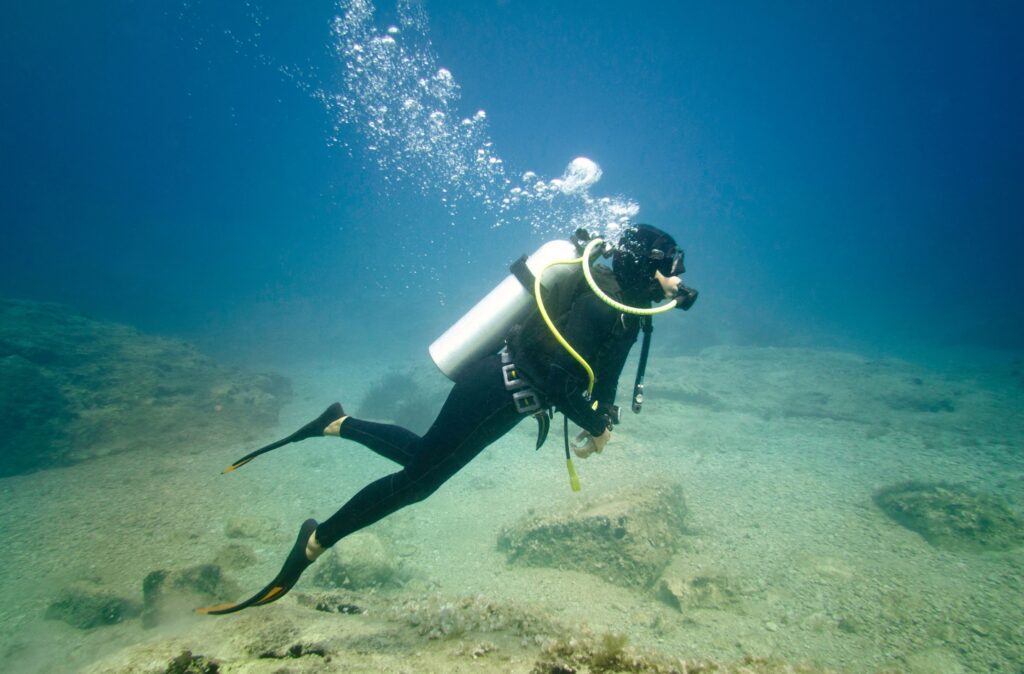
Descent Timing: Lowering into the Deep Blue
Venturing into the aquatic realm is as thrilling as it is challenging. The moment of descent is critical as it marks the transition from terrestrial to aquatic life. Your focus during this time should be on maintaining a controlled rate of descent. Optimal descent timing is crucial to balance the inner ear pressure and acclimatize your body to the underwater pressure gradually. It also ensures sufficient time for equalization – a necessary measure to prevent sharp pain in the ears due to changing pressure. By incorporating descent techniques in their curriculum, open water courses promote mindful descents into the depths of the sea, thereby enabling you to have a safer and more enjoyable diving experience.
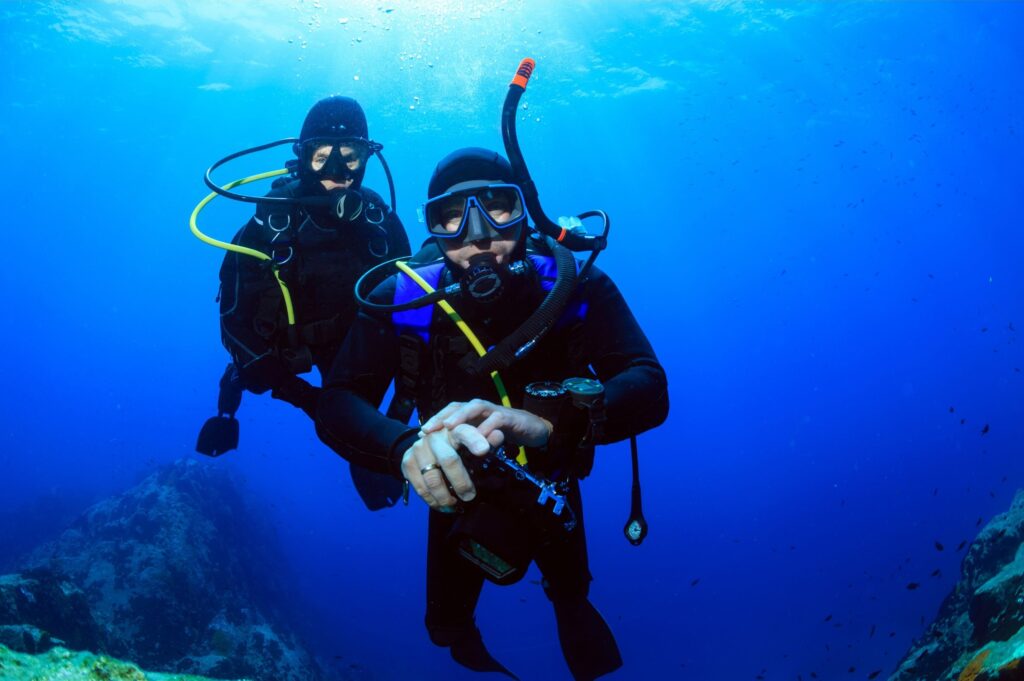
Understanding Under Water Pressure: Safeguard Your Inner Aquanaut
Deep underwater, the pressure is immense, the deeper you go, the greater the pressure exerted on your body. This understanding includes learning techniques to equalize pressure in your ears, how to clear your mask if it gets filled with water, and most importantly, knowing the dangers of rapid ascents and descents underwater. Failure to comply with pressure adjustments may lead to serious ailments, known as decompression sickness or ‘The Bends,’ among divers. Open water courses go to great lengths to ensure divers are fully educated about these risks, scuba diving skills to react appropriately if things go wrong underwater. By ensuring this basic understanding, contributing to the larger cause of promoting safe and responsible scuba diving.
Diving Into Your Scuba Adventure: Recap and Dive In
Embarking on your scuba diving journey is truly a plunge into an unforgettable adventure. From strengthening your swimming skills to mastering buoyancy control, learning descent timing to understanding underwater pressure, every step opens up new aspects of this exciting expedient. An open water course lays the foundation for your scuba diving skills for underwater expedition, presenting principles and techniques compactly. With all these scuba diving skills mastered and a sprinkle of excitement and bravery, you’re all set to dive into the adventure that awaits beneath the waves. So, prepare your diving equipment, tighten your dive masks and breathe in deeply as you immerse yourself in the thrilling experience of scuba diving.
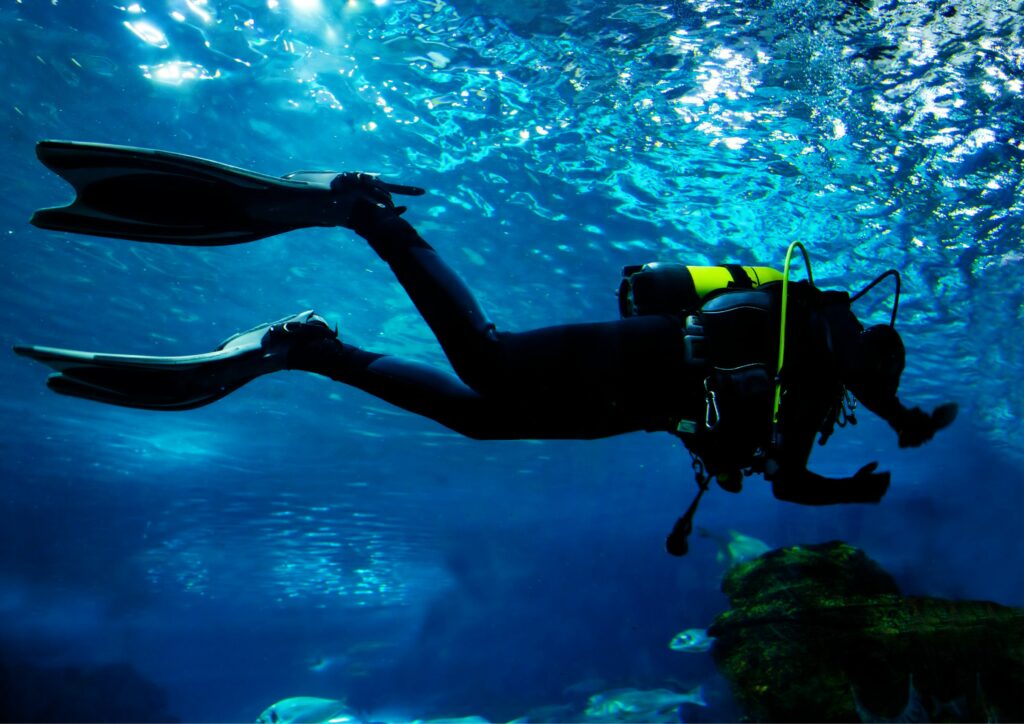
I love how this blog post breaks down the essential skills for scuba diving. It’s really helpful for beginners like me who are eager to learn and dive in safely.
Hi Kavitha, thanks for sharing your thoughts on our scuba diving skills post! We’re thrilled to hear that you found it helpful and informative. At Gill Divers, we believe that safety is the top priority in scuba diving, which is why we emphasize the importance of mastering basic skills like swimming, breathing techniques, buoyancy control, descent timing, and understanding underwater pressure. Our open water courses are designed to equip divers with the knowledge and skills they need to dive safely and responsibly. If you have any more questions or would like to learn more about our scuba diving courses, please don’t hesitate to reach out! We’re always here to help.
I must say, the section on understanding underwater pressure really opened my eyes. As a beginner diver, it’s crucial to learn about these risks and take necessary precautions.
Dear Fatima Tan Sri, Thank you for sharing your thoughts on the importance of understanding underwater pressure. We completely agree that it’s crucial to learn about these risks and take necessary precautions as a beginner diver. At Gill Divers, we prioritize safety above all else, which is why our scuba diving courses cover essential skills like equalization, clearing masks, and managing buoyancy. Our expert instructors are dedicated to ensuring that every diver leaves our course feeling confident and prepared for their underwater adventures. If you have any questions or concerns about our courses or scuba diving in general, please don’t hesitate to reach out to us at +65 6734 9373 or [email protected]. We’d be happy to help.
This post is so comprehensive! I especially appreciate the section on buoyancy control. As a scuba diving enthusiast, I’m always looking to improve my skills and stay safe underwater.
Hi Zainudin, thanks for taking the time to share your thoughts on our post! We’re thrilled to hear that you found the section on buoyancy control particularly helpful. At Gill Divers, we believe that mastering buoyancy control is essential for a safe and enjoyable diving experience. If you have any more questions or topics you’d like to discuss, please don’t hesitate to reach out. Our team is always here to help. You can contact us at Tel: +65 6734 9373, Email: [email protected]. We look forward to hearing from you again!